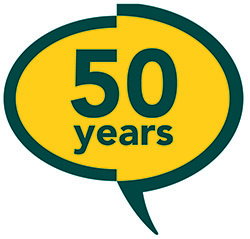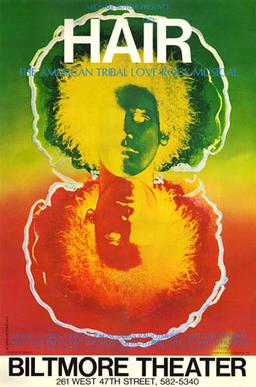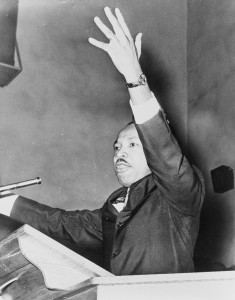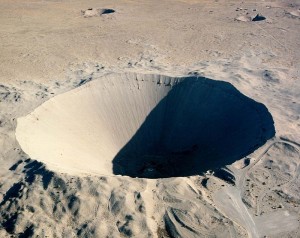In April, 50 years ago
 NCPR first signed on the air March 7, 1968 and we will be celebrating our Golden Anniversary all year with a lot of special events.
NCPR first signed on the air March 7, 1968 and we will be celebrating our Golden Anniversary all year with a lot of special events.
1968 was what you might call a happening time, and not always in a good way. Here are some of the things that happened in April, “the cruelest month” of that year. We’ll start off easy…
In arts, sports and entertainment
 While April 1968 was a good month for science fiction, with the release Stanley Kubrick’s classic film, 2001: A Space Odyssey, and the slightly less stellar Planet of the Apes, it was a tough month for baseball. It took the Houston Astros 24 innings and six hours to put the NY Mets to bed, 1-0. By then, all but 1000 fans had left the stadium for their own beds. The Baltimore Orioles won distinction by going through three pitchers and walking 14 NY Yankees in a 9-inning game. The Andy Griffith show aired its 249 and final episode. Simon & Garfunkel released their fourth studio album Bookends. The album’s single “Mrs. Robinson” went on to top the U.S. charts. In the Heat of the Night took top honors at the Oscars. And the musical Hair opened on Broadway, where it would run for 1,873 performances. Jimmy Ellis was named world heavyweight boxing champion one year to the day after the World Boxing Association had stripped the title from Muhammad Ali.
While April 1968 was a good month for science fiction, with the release Stanley Kubrick’s classic film, 2001: A Space Odyssey, and the slightly less stellar Planet of the Apes, it was a tough month for baseball. It took the Houston Astros 24 innings and six hours to put the NY Mets to bed, 1-0. By then, all but 1000 fans had left the stadium for their own beds. The Baltimore Orioles won distinction by going through three pitchers and walking 14 NY Yankees in a 9-inning game. The Andy Griffith show aired its 249 and final episode. Simon & Garfunkel released their fourth studio album Bookends. The album’s single “Mrs. Robinson” went on to top the U.S. charts. In the Heat of the Night took top honors at the Oscars. And the musical Hair opened on Broadway, where it would run for 1,873 performances. Jimmy Ellis was named world heavyweight boxing champion one year to the day after the World Boxing Association had stripped the title from Muhammad Ali.
“The cruelest month”
 On April 4, Rev. Martin Luther King, Jr. was assassinated in Memphis, where he had come to show support for striking sanitation workers, the night after he had given an inspiring but chillingly prophetic speech now know as “I’ve Been to the Mountaintop.” From a boarding house across the street, James Earl Ray fired a single shot from a .30-06 rifle, that struck and killed King while he was standing on the balcony of the Lorraine Hotel.
On April 4, Rev. Martin Luther King, Jr. was assassinated in Memphis, where he had come to show support for striking sanitation workers, the night after he had given an inspiring but chillingly prophetic speech now know as “I’ve Been to the Mountaintop.” From a boarding house across the street, James Earl Ray fired a single shot from a .30-06 rifle, that struck and killed King while he was standing on the balcony of the Lorraine Hotel.
In the wake of the non-violent civil rights leader’s assassination there would be 85 U.S. cities hit by violence, 30 people killed, and at least 2,000 injured.
On April 7, Massachusetts Sen. Edward W. Brooke of Massachusetts proposed that January 15 become an national holiday to commemorate King’s birth and life.
On April 10, President Lyndon B. Johnson signed the Civil Rights Act of 1968, including the Fair Housing Act. The Memphis sanitation strike was resolved in favor of the workers, who won the right to unionize as well as a raise in pay.
Around the world
The apparition of the Virgin Mary was seen on the roof of the Church of Saint Mary, a Coptic Christian church in Cairo, Egypt. Justice Minister Pierre Trudeau won leadership of Canada’s ruling Liberal Party, becoming Prime Minister later in the month. The International Committee of the Red Cross (ICRC) made its first humanitarian aid flight to aid Biafra, locked in a secession effort from Nigeria. London Bridge was sold to McCulloch Oil Corporation for $2,240,000. It would be reassembled as a tourist attraction in Lake Havasu City, Arizona. The United Methodist Church was formed in the U.S. by merging the former Methodist Church with the Evangelical United Brethren Church.
In war: past, present and future
The United States returned Iwo Jima and neighboring islands to Japanese sovereignty, 23 years after the Battle of Iwo Jima.
North Vietnam announced an interest in peace talks proposed by U.S. Lyndon Johnson in late March. Anti-war protestors occupied buildings at Columbia University. 200,000 college and high school students in New York City boycotted classes after a call for a nationwide protest by the Student Mobilization Committee To End the War In Vietnam.
The Soviet Army Group South began preparation for the invasion of Czechoslovakia to suppress the “Prague Spring” reforms.
The Treaty of Tlatelolco went into effect, in which most nations of the Western Hemisphere agreed to ban “the testing, use, manufacture, production or acquisition by any means or type” of nuclear weapons within their countries. A few days later the U.S. tested its largest hydrogen bomb ever, nicknamed “Boxcar,” underground in Nevada.
NPR has also been taking a look back at the pivotal year 1968 in a special series – 1968: How We Got Here
Tags: listeningpost, ncpr@50









I always like look backs, but one of the things I wonder is what was big then
Not what has held up the test of time…. I was a little kid, but I don’t remember Martin Luther King Jr’s assignation, I am sure it was news, but has it become bigger that it was then
to put it in better perspective, ” 2001: A Space Odyssey” a year later was only nominated for best director, and Stanley Kubrick did not win… It also didn’t win best set, but was nominated… but now we think it is one of the best movies ever.